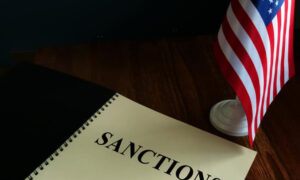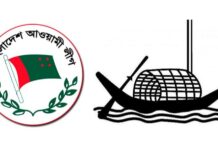 Bangladesh could be one of the “targets” for stringent measures such as sanctions, trade penalties and visa restrictions threatened in the US Presidential Memorandum on labour rights, alerts the country’s mission in Washington.
Bangladesh could be one of the “targets” for stringent measures such as sanctions, trade penalties and visa restrictions threatened in the US Presidential Memorandum on labour rights, alerts the country’s mission in Washington.
The mission has interpreted the mid-November US presidential memorandum as a “signal” of potential action from the economic superpower-Bangladesh’s single-largest apparel-export destination-that could touch Bangladesh, too.
In a letter to commerce ministry on November 20, the embassy noted that “labour issues in Bangladesh were specifically quoted by the Secretary of State and the acting Secretary of Labor at the launching ceremony” of the memorandum.
The diplomatic mission forewarned that the government should take the Memorandum into cognizance to avert any possible consequence on the country’s RMG sector.
The diplomatic note explains: “The Memorandum may also have an impact on Bangladesh’s apparel sector, and it should be taken into cognizance with priority by the concerned stakeholders.”
With an air of concern about potential interference in domestic affairs, the letter, signed by Minister (Commerce) Md Salim Reza at the Bangladesh embassy in the United States, says that “as per the ‘Memorandum’, the US foreign mission would directly interact/deal with labour issues, the policy may encourage the interested US diplomats/missions to interfere in many internal/domestic issues.”
Such apprehension implies a reference to the upcoming general election in Bangladesh and a ‘hyperactive’ US role in the pre-polls period marked by opposition standoff over its fairness issue.
On November 16, US President Joe Biden signed the memorandum, pledging to uphold advancing worker, empowerment, rights, and high labour standards globally.
Elaborating on the memorandum, US Secretary of State Antony Blinken warned that sanctions, trade embargoes and visa bans would be imposed on individuals who threaten, intimidate or attack labour-union leaders, labour-rights activists and labour organisations.
Mr Blinken cited the example of Kalpana Akhter, a Bangladeshi garment-worker- rights activist, whom he credited with being alive due to US intervention.
The US is Bangladesh’s single-largest apparel buyer. Despite a more than 23-percent year-on-year decline, Bangladeshi garment exports earned the country $5.77 billion in the first nine months of 2023.
Apart from Mr Blinken’s specific mention of the Bangladeshi labour leader and potential adverse effects on readymade-garment exports, the Bangladesh mission expressed concern about the “political context” of the memorandum.
“Politics is behind what is said about labour rights in the memorandum, and the US would try to use the political purpose in different ways,” the letter reads.
Since the Democratic Biden administration took office in 2021, Washington has been more vocal in promoting democracy and human rights worldwide.
In December 2021, the US imposed sanctions on the Rapid Action Battalion (RAB) and its top officials by citing human-rights violations and extrajudicial killings.
Ahead of Bangladesh’s national elections scheduled for the first week of January 2024, the US has also been consistently urging the government to ensure free and fair polls. In an unprecedented move this year, the US has announced that it would impose visa restrictions on individuals involved in obstructing fair elections.
The announcement of the visa restrictions strained Dhaka-US relations. Against this backdrop, the Bangladesh mission in Washington believes that the labour- rights policy could be imposed at the individual, firm or state level if Washington perceives or believes that labour rights are being transgressed.
The letter to the commerce ministry cautions that the memorandum serves as a “signal” to Bangladesh that the US may take any measures outlined in the memorandum under the “pretext” of labour issues.
Contacted over the conundrum, executive president Bangladesh Knitwear Manufacturers & Exporters Association Mohammad Hatem said there remains no reason for tarnishing worker rights in Bangladesh.
“Labour rights are being violated in different countries, especially in African nations, but why are the labour-right issues of Bangladesh raised frequently? He posed the question.
Citing example he says only one labour organization exists in Vietnam which is under control by the Vietnam govern.
Currently, the US is Bangladesh’s largest export market, with around U$9.75 billion in total exports last fiscal year, including almost volume in RMG, according to the Export Development Bureau (EPB).
Financial Express









